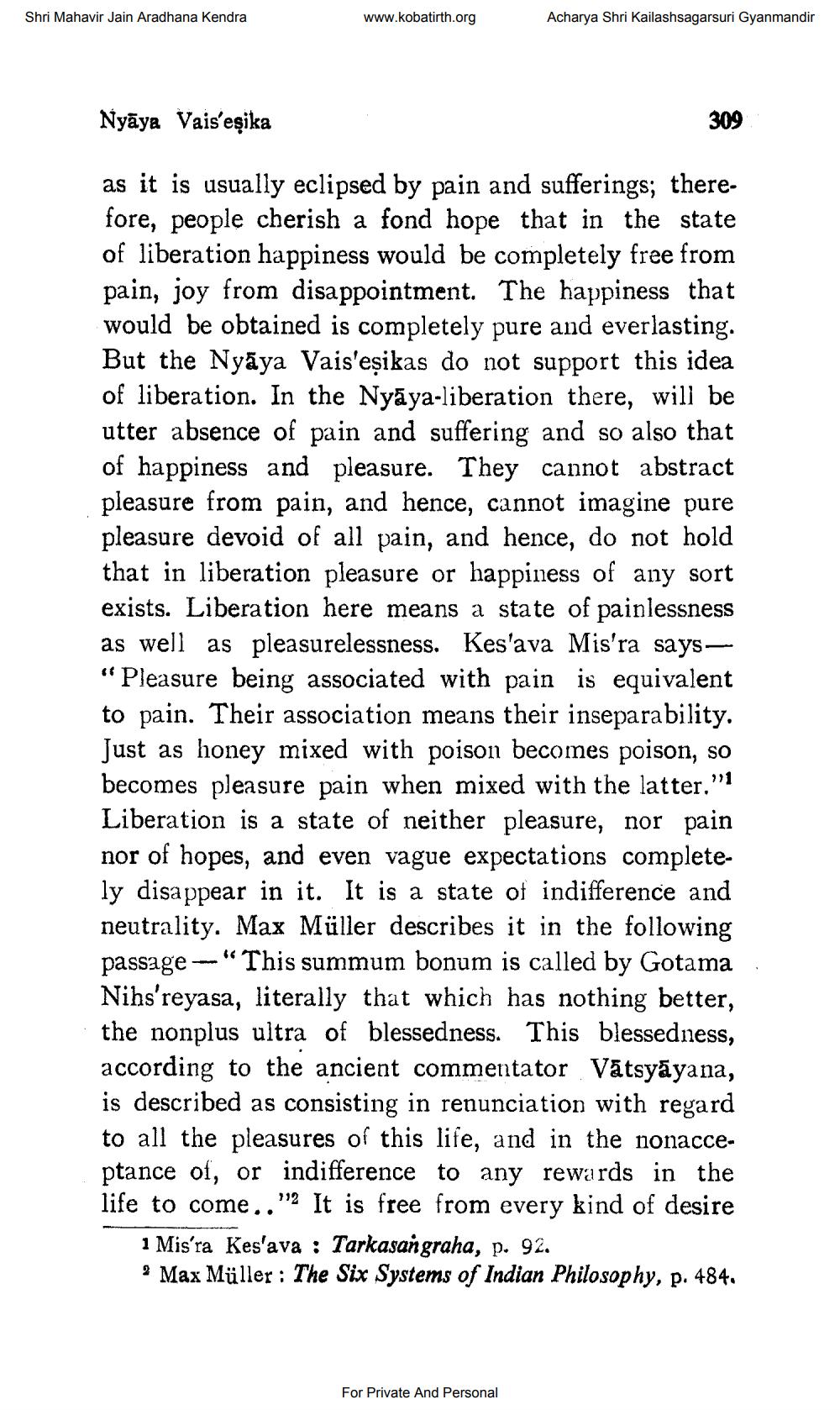________________
Shri Mahavir Jain Aradhana Kendra
www.kobatirth.org
Acharya Shri Kailashsagarsuri Gyanmandir
Nyaya Vais'eşika
as it is usually eclipsed by pain and sufferings; therefore, people cherish a fond hope that in the state of liberation happiness would be completely free from pain, joy from disappointment. The happiness that would be obtained is completely pure and everlasting. But the Nyaya Vais'eṣikas do not support this idea of liberation. In the Nyaya-liberation there, will be utter absence of pain and suffering and so also that of happiness and pleasure. They cannot abstract pleasure from pain, and hence, cannot imagine pure pleasure devoid of all pain, and hence, do not hold that in liberation pleasure or happiness of any sort exists. Liberation here means a state of painlessness as well as pleasurelessness. Kes'ava Mis'ra says— "Pleasure being associated with pain is equivalent to pain. Their association means their inseparability. Just as honey mixed with poison becomes poison, so becomes pleasure pain when mixed with the latter." Liberation is a state of neither pleasure, nor pain nor of hopes, and even vague expectations completely disappear in it. It is a state of indifference and neutrality. Max Müller describes it in the following passage "This summum bonum is called by Gotama Nihs'reyasa, literally that which has nothing better, the nonplus ultra of blessedness. This blessedness, according to the ancient commentator Vātsyāyana, is described as consisting in renunciation with regard to all the pleasures of this life, and in the nonacceptance of, or indifference to any rewards in the life to come.." It is free from every kind of desire
"1
For Private And Personal
309
1 Mis'ra Kes'ava: Tarkasangraha, p. 92.
2 Max Müller: The Six Systems of Indian Philosophy, p. 484.




